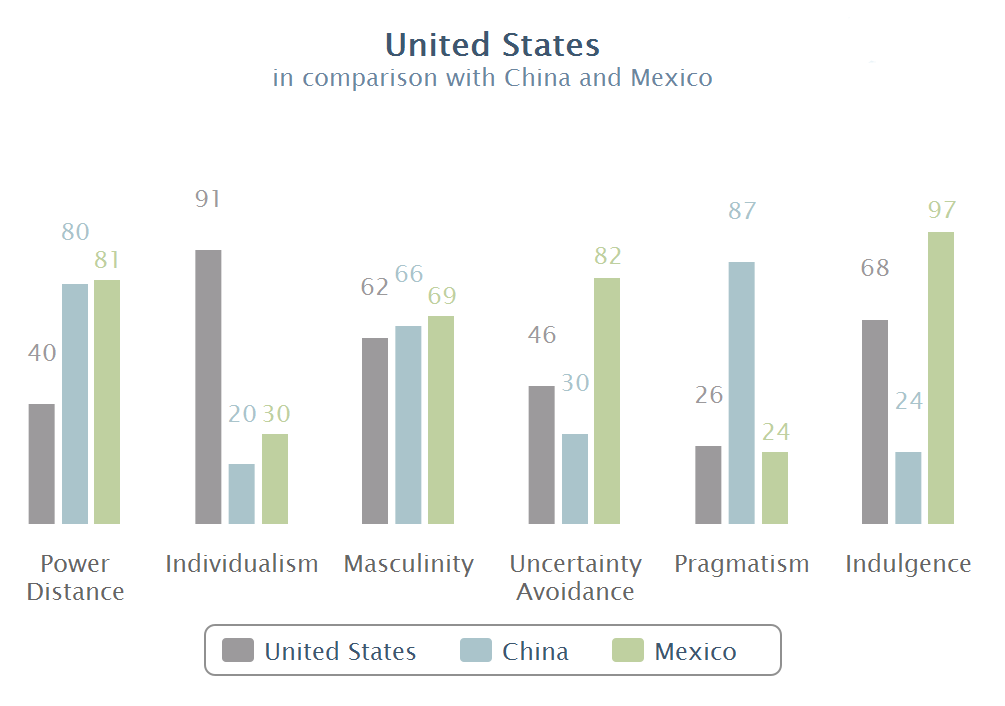The chart below contrasts the United States against two of its top trading partners, China and Mexico. (Canada, the United States’ top trading partner, scores similarly.)

The United States is notably higher in individualism than Mexico and China while being lower in power distance. According to the Hofstede Center, this is due to:
– The American premise of “liberty and justice for all.” This is evidenced by an explicit emphasis on equal rights in all aspects of American society and government.
– Within American organisations, hierarchy is established for convenience, superiors are accessible and managers rely on individual employees and teams for their expertise.
– Both managers and employees expect to be consulted and information is shared frequently. At the same time, communication is informal, direct and participative to a degree.
– The society is loosely-knit in which the expectation is that people look after themselves and their immediate families only and should not rely (too much) on authorities for support.
– There is also a high degree of geographical mobility in the United States. Americans are the best joiners in the world; however it is often difficult, especially among men, to develop deep friendships.
– Americans are accustomed to doing business or interacting with people they don’t know well. Consequently, Americans are not shy about approaching their prospective counterparts in order to obtain or seek information. In the business world, employees are expected to be self-reliant and display initiative. Also, within the exchange-based world of work we see that hiring, promotion and decisions are based on merit or evidence of what one has done or can do.
In contrast, China and Mexico favor closer relationships with business partners and group loyalty.
A category China scores highly in is pragmatism.
China scores 87 in this dimension, which means that it is a very pragmatic culture. In societies with a pragmatic orientation, people believe that truth depends very much on situation, context and time. They show an ability to adapt traditions easily to changed conditions, a strong propensity to save and invest, thriftiness, and perseverance in achieving results.
On Mexico’s high score in indulgence:
People in societies classified by a high score in indulgence generally exhibit a willingness to realize their impulses and desires with regard to enjoying life and having fun. They possess a positive attitude and have a tendency towards optimism. In addition, they place a higher degree of importance on leisure time, act as they please and spend money as they wish.
Learn about the cultures of more countries at The Hofstede Center website.
(hat tip to China Law Blog)
